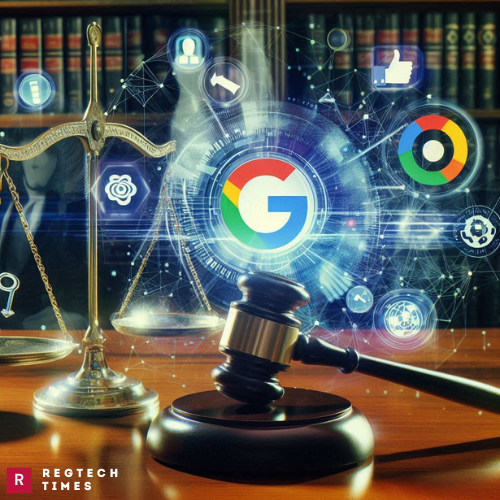Live Nation's Antitrust Battle: DOJ Claims Coercion Of Artists

Table of Contents
The Department of Justice's Case Against Live Nation
The DOJ's case against Live Nation centers on allegations of anti-competitive behavior, claiming the company leverages its dominant market position to pressure artists into exclusive contracts. The core of their argument rests on the assertion that Live Nation uses its considerable power to stifle competition and harm artists' ability to negotiate favorable terms. The DOJ alleges this constitutes a violation of antitrust laws, specifically the Sherman Act.
- Specific Allegations of Anti-Competitive Behavior:
- Bundling of ticketing services: The DOJ claims Live Nation forces venues to use its Ticketmaster ticketing system, limiting artists' choices and potentially inflating ticket prices.
- Exclusive venue contracts: Allegations include Live Nation pressuring artists to play only at venues it owns or operates, thereby restricting competition and limiting artist options.
- Pressure on artists to use Live Nation's promotional services: The DOJ suggests artists face pressure to utilize Live Nation's promotional services, even if they're less effective or more expensive than alternatives.
The DOJ seeks significant penalties for Live Nation if found guilty, which could include substantial fines and structural changes to the company's operations. The severity of potential penalties underscores the gravity of the allegations and the potential ramifications for the industry.
Live Nation's Defense Strategy
Live Nation denies the DOJ's accusations, maintaining that its actions are pro-competitive and ultimately benefit both artists and fans. Their defense strategy appears multifaceted:
- Key Defenses:
- Denial of coercion: Live Nation argues it does not coerce artists into exclusive contracts and that artists freely choose to work with them.
- Claim of fair market competition: The company contends it operates within the bounds of fair market competition and that its size allows it to offer artists greater reach and promotional opportunities.
- Argument that their size benefits artists through increased reach: Live Nation highlights its extensive network of venues and promotional capabilities, arguing this benefits artists by expanding their audience reach.
Live Nation’s defense will likely involve presenting evidence to counter the DOJ's claims, potentially including contracts showing artists' willingness to work under the existing agreements. The success of this defense will hinge on its ability to convincingly refute the DOJ's allegations of coercion and anti-competitive practices.
Impact on Artists and the Music Industry
The Live Nation antitrust battle has significant ramifications for artists and the music industry as a whole. The potential consequences of Live Nation's alleged actions are far-reaching:
- Negative Effects on Artists:
- Reduced artist bargaining power: Exclusive contracts may significantly reduce artists’ bargaining power, limiting their ability to negotiate favorable deals for touring, venue selection, and other crucial aspects of their careers.
- Limited venue choices: Restricting access to venues could limit artists’ touring opportunities and potentially stifle their career growth.
- Higher costs for artists: Forced use of Live Nation's services could inflate costs for artists, reducing their overall profit margins.
Beyond the impact on artists, the broader music industry could face consequences such as inflated ticket prices, reduced diversity in live music events, and a potential chilling effect on smaller venues and independent artists who lack the resources to compete with Live Nation's scale.
Previous Antitrust Scrutiny of Live Nation
This isn't the first time Live Nation has faced antitrust scrutiny. The company, formed from the merger of Live Nation and Ticketmaster, has a history of attracting regulatory attention regarding its market dominance. Previous investigations have explored similar concerns about its control over ticketing, venue booking, and artist management. While past settlements may have addressed some issues, this current case suggests ongoing concerns about Live Nation's business practices and their impact on competition. The current lawsuit builds upon these past concerns, potentially leading to more stringent regulatory oversight.
Potential Outcomes and Future Implications
The outcome of this Live Nation antitrust battle remains uncertain. Several possibilities exist: a negotiated settlement, a court ruling in favor of the DOJ, or a court ruling in favor of Live Nation. Each outcome will have significant implications:
- Potential Outcomes and Implications:
- Settlement: A settlement could involve fines, behavioral changes, or structural remedies like divestment of assets.
- DOJ Victory: A ruling in favor of the DOJ could lead to substantial fines, significant operational changes for Live Nation, and potentially increased regulatory oversight of the live music industry.
- Live Nation Victory: A victory for Live Nation would likely maintain the status quo, but could embolden the company and potentially lead to further consolidation in the industry.
The long-term implications are substantial. Regardless of the outcome, increased regulatory scrutiny of large entertainment companies is highly probable. The future may witness changes to artist contracts, increased transparency in ticketing practices, and greater efforts to foster competition within the live music industry.
Conclusion: The Future of Live Nation and the Fight for Fair Competition
The Live Nation antitrust battle highlights a critical struggle between the dominance of a major corporation and the need for fair competition within the music industry. The DOJ's allegations, coupled with Live Nation's defense, reveal a complex landscape where the power dynamics between a giant entertainment company and artists are fiercely contested. The potential impact on artists' careers, ticket prices, and the overall diversity of live music is significant. Stay tuned for updates on this crucial Live Nation antitrust battle as it unfolds, and continue to support fair competition within the music industry.

Featured Posts
-
 Le Pen Denounces Embezzlement Conviction As Witch Hunt At Paris Rally
May 29, 2025
Le Pen Denounces Embezzlement Conviction As Witch Hunt At Paris Rally
May 29, 2025 -
 Months After Ohio Derailment Toxic Chemicals Still Present In Buildings
May 29, 2025
Months After Ohio Derailment Toxic Chemicals Still Present In Buildings
May 29, 2025 -
 Gugatan Pembeli Nft Nike Rp 84 Miliar Dipertaruhkan
May 29, 2025
Gugatan Pembeli Nft Nike Rp 84 Miliar Dipertaruhkan
May 29, 2025 -
 100 Forintos Bankjegyek Hogyan Ismerd Fel A Ritkasagokat
May 29, 2025
100 Forintos Bankjegyek Hogyan Ismerd Fel A Ritkasagokat
May 29, 2025 -
 Who Should Play Lucius Malfoy Jason Isaacs Reveals His Pick
May 29, 2025
Who Should Play Lucius Malfoy Jason Isaacs Reveals His Pick
May 29, 2025
